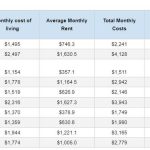Voters adopted plan to restrict gun sales to adults
Before the 2018 election, WND reported on a ballot initiative in Washington state that would withdraw Second Amendment rights from some adults, require gun buyers to give up their medical privacy and more.
The Second Amendment Foundation and the Citizens Committee For The Right to Keep And Bear Arms issued warnings.
But millions of dollars in campaign donations at the time from several anti-gun activists, including Microsoft co-founder Paul Allen and former Microsoft CEO Steve Ballmer, swayed voters.
Now the approved initiative, No. 1639, is the subject of a lawsuit against the state.
“While a handful of billionaires spending millions of dollars were able to buy votes, it is our hope they can’t buy the judges,” said Alan Gottlieb, the executive vice president of the Second Amendment Foundation.
SAF has joined with the National Rifle Association to sue the state in federal court over the initiative. Several other plaintiffs are gun dealers and young adults whose gun rights were infringed by the vote.
“The lawsuit challenges the measure on the grounds that it violates the Commerce Clause by banning sales of rifles to non-residents, and that it unconstitutionally impairs the rights guaranteed by the First, Second and Fourteenth Amendments, and Article I Section 24 of the Washington State constitution by preventing the sale to otherwise qualified adults under age 21 of certain rifles,” the organizations announced.
“We are also considering additional legal challenges,” said Gottlieb. “We are disappointed that too many Evergreen State voters were fooled into supporting this 30-page gun control scheme, despite overwhelming law enforcement opposition. This initiative is an affront to the constitutional rights enshrined in the Second Amendment and the Washington state constitution, especially for young adults.”
He continued: “We’re determined to fight this egregious measure because constitutionally protected rights should never be subject to a popularity vote. The wealthy elitists behind I-1639 want to turn a right into a regulated privilege. This measure was only designed to have a chilling effect on the exercise of a constitutional right by honest citizens while having no impact at all on criminals, and we cannot let it go unchallenged.”
Chris Cox, of the National Rifle Association’s Institute for Legislative Action, added: “The NRA is committed to restoring the Second Amendment rights of every law-abiding Washingtonian. I-1639 violates the constitutional rights of law-abiding citizens and puts people at risk. This lawsuit is the first step in the fight to ensure that Washingtonians are free to exercise their fundamental right to self-defense.
“The NRA will fight to overturn this unconstitutional initiative. We will not sit idly by while elitist anti-gun activists attempt to deny everyday Americans their fundamental right to self-defense,” he said.
During the campaigning, it was revealed the initiative requires gun owners to lock up their firearms or become criminals.
“This strict mandate renders firearms useless in a self-defense situation by requiring them to be locked up,” the campaign explained. “The different between someone saving their family and becoming a victim of crime sometimes comes down to a few crucial seconds.”
It also would strip from young adults their rights to have long firearms. And it would let the government “collect and use gun owner information to enforce compliance and authorize gun confiscations.”
The proposal would collect data during gun sales, and it all could be used to enforce new “verification” processes.
There’s also a 10-day waiting period and a provision that gun owners must sign away their medical history privacy rights.
NRA and the Second Amendment Foundation previously challenged the initiative’s validity in separate legal actions, winning initially in Thurston County Superior Court. But that ruling was reversed by the state Supreme Court.
It involved a state requirement that the entire proposal be available on petitions for signers to read. The issue arose when promoters miniaturized the plan so that all 30 pages of legalese fit on one sheet of paper, making it virtually unreadable for many.
The plan also faces potential challenges, analysts explained, because it deals with several subjects, and state initiatives are required to have only one.












